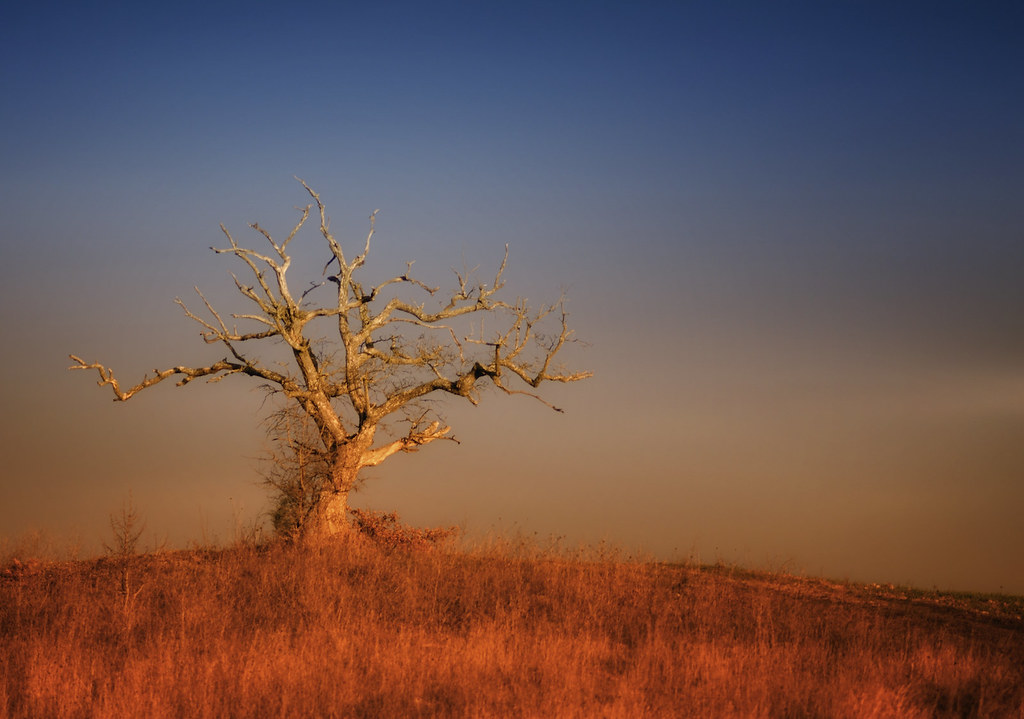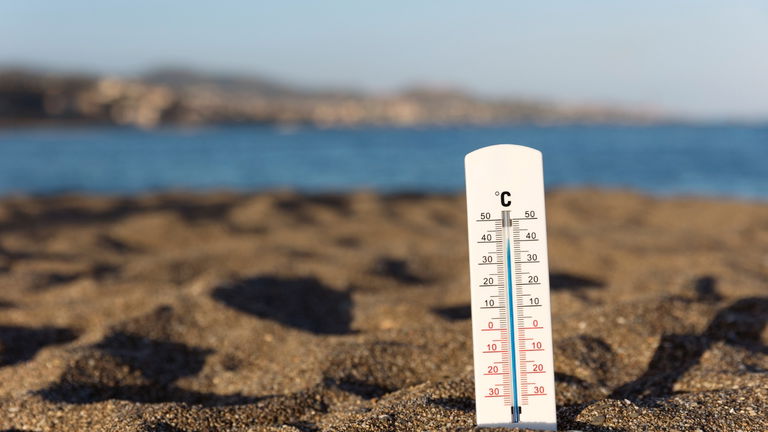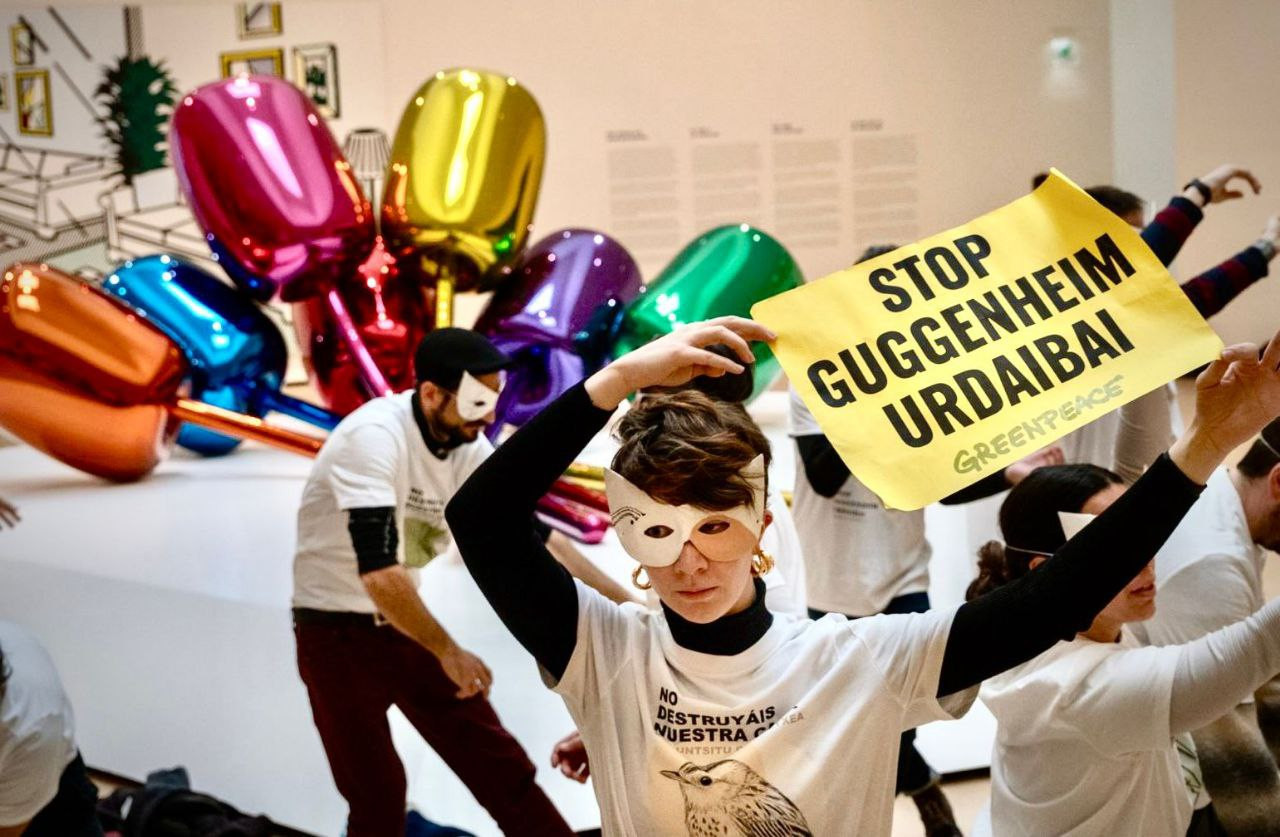'Flying rivers', key players in the global climate
- In the event of escape from the climate disaster, it will not be enough to reduce greenhouse gas concentrations in the atmosphere. It will also be necessary to preserve forests and soils so that deforestation and intensive agriculture do not deteriorate, as the water cycle is also very important to regulate the climate. We just understood that.

As soon as the process of Congresses on climate warming began in New York in 1992, scientific publications began to pay attention to so-called ‘air rivers’, water vapor currents of great importance in the formation of rains. These ‘air rivers’, initially called ‘tropospheric rivers’, emerge from the ocean evaporation and evapotranspiration of the large Amazonian, Congolese and siberian forests. In 1992, Tropospheric rivers? In the A pilot study, scientists such as Reginald Newell maintained that the flow of vapor currents in the air was very high: that of the Amazon approached the flow of the Amazon, that is, 165,000 m3 per second.
Fifteen years later, in 2006 and 2007, Victor Groshkov of St. Petersburg and Anastassia Makarieva formulated the principle of the biotic bomb: "a mechanism by which natural forests produce and control the winds that go from the ocean to the earth, dragging moisture into all kinds of life on earth." Thus, they showed the fundamental role that forests and trees play in the climate: the steam rivers formed by large rainforests by evapotranspiration must be added to the moisture absorbed into the oceans and penetrated into the earth thousands of kilometers.
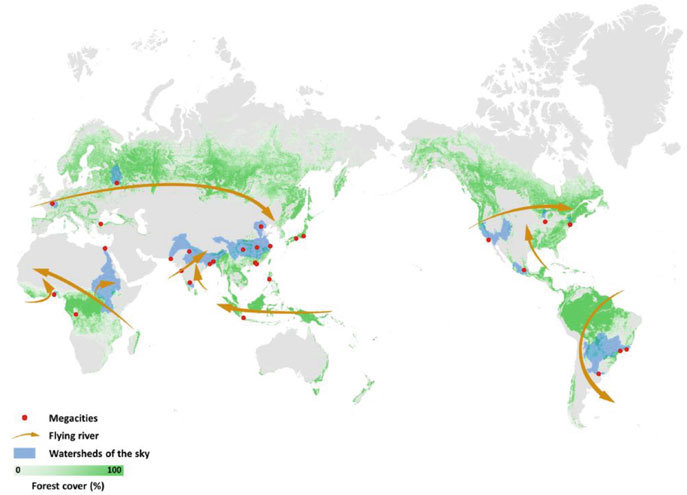
This idea was assumed in 2014 by Antonio Donato Nobre, researcher of the National Institute of Spatial Research (INPE) of Brazil, in the study The Future Climate of Amazonia. Nobre highlighted the decisive role played by air rivers of land from the Amazon rainforest in the climate of all of South America (east of the barrier mountains of Ande), as well as in part of North America, causing rains.
Halt deforestation immediately
But Antonio Donato Nobre also denounced the devastating effects of deforestation: it reduces the amounts of water vapor caused by the evapotranspiration of the trees, and the resulting rain, causing confusion in the biotic pump, which severely affects the sea forests that absorb wet air. This destruction can lead to the dramatic conversion of the Amazon into savanna, an area in which the presence of trees has lost strength in favour of herbaceous plants. There is already a savanna in the Cerrado, south of the Amazon, whose 40% has been destroyed for the benefit of livestock and soya fields.
Thus, the desert could become an extensive western area of the city of São Paulo, which brings together most of the population and Brazilian activity, such as the enormous desert that Australia has today in a similar latitude. Recently, in 2021, the TV channel Arte has offered the film Le mistere des rivières volantes d’Amazonie (The Mystery of the Flying Rivers of the Amazon) by Pascal Cuissot, in which it shows how this evolution has begun: in the famous jumps of water of Iguazu, which are located on the border between Brazil and Argentina, at a time of 3.

Moreover, the United Nations Environment Programme (UNEP) recommends from August 2021 “working with plants, soils and water to curb the Earth’s climate and hydrate landscapes”. The UNEP clearly concludes that to avoid the climate disaster it is necessary not only to stop deforestation rapidly, but also to address the planting of forests around the world and to develop agricultural practices that revitalize soils, such as agroforestry.
In fact, in the prevailing crop model today, based on chemical fertilizers, the fact that the organic matter (humus) left in the soils is so small that soils lose their retention capacity and fields have less resilience to cope with drought. This affects evapotranspiration, as evapotranspiration differs depending on the vegetation covering the soil being made up of crops, meadows, hedges or trees.
The Intergovernmental Panel on Climate Development (GIEC) has entered a dead end because it has ignored the importance of water in climate change, taking into account only greenhouse gases. Because, even though the increase in greenhouse gases in the atmosphere would come to a halt, the climate change brought about by deforestation and our forms of land occupation would continue to be the same and these vast regions of the Earth would become deserts.
It is true that when GIEC was established (1988) the explanation of climate change focused on increasing the quantities of greenhouse gases. But today, if we are to prevent the drying up and spread of desertification of the planet, it is mandatory to take into account the role of water in the climate. The deforestation of large forests must therefore be stopped immediately, new forests planted and the cultivation model revolutionised. Because you can get agriculture to stop destroying the water cycle and, by comparing it, to become a lever for change through living soils that can maintain moisture and retain more carbon in the soil.
Daniel Hofnung, an engineer portrayed today, is president of coordinator Eau Il-de-France. On the occasion of March 22, International Water Day, he published this opinion article in French in the magazine Reporterre.
Today’s Venice is built on an archipelago of 118 islands. These islands are connected by 455 bridges. The city is based on mud rather than Lura. Millions of trees in the area were cut down from the 9th century onwards to build piles and cement the city. Years have passed and... [+]
Lurrak guri zuhaitzak eman, eta guk lurrari egurra. Egungo bizimoldea bideraezina dela ikusita, Suitzako Alderdi Berdearen gazte adarrak galdeketara deitu ditu herritarrak, “garapen” ekonomikoa planetaren mugen gainetik jarri ala ez erabakitzeko. Izan ere, mundu... [+]
Eskola inguruko natur guneak aztertu dituzte Hernaniko Lehen Hezkuntzako bost ikastetxeetako ikasleek. Helburua, bikoitza: klima larrialdiari aurre egiteko eremu horiek identifikatu eta kontserbatzea batetik, eta hezkuntzarako erabiltzea, bestetik. Eskola bakoitzak natur eremu... [+]
Agintari gutxik aitortzen dute publikoki, disimulurik eta konplexurik gabe, multinazional kutsatzaileen alde daudela. Nahiago izaten dute enpresa horien aurpegi berdea babestu, “planetaren alde” lan egiten ari direla harro azpimarratu, eta kutsadura eta marroiz... [+]
Biologian doktorea, CESIC Zientzia Ikerketen Kontseilu Nagusiko ikerlaria eta Madrilgo Rey Juan Carlos unibertsitateko irakaslea, Fernando Valladares (Mar del Plata, 1965) klima aldaketa eta ingurumen gaietan Espainiako Estatuko ahots kritiko ezagunenetako bat da. Urteak... [+]
Nola azaldu 10-12 urteko ikasleei bioaniztasunaren galerak eta klima aldaketaren ondorioek duten larritasuna, “ez dago ezer egiterik” ideia alboratu eta planetaren alde elkarrekin zer egin dezakegun gogoetatzeko? Fernando Valladares biologoak hainbat gako eman dizkie... [+]
Eskoziako Lur Garaietara otsoak itzularazteak basoak bere onera ekartzen lagunduko lukeela adierazi dute Leeds unibertsitateko ikertzaileek.. Horrek, era berean, klima-larrialdiari aurre egiteko balioko lukeela baieztatu dute, basoek atmosferako karbono-dioxidoa xurgatuko... [+]












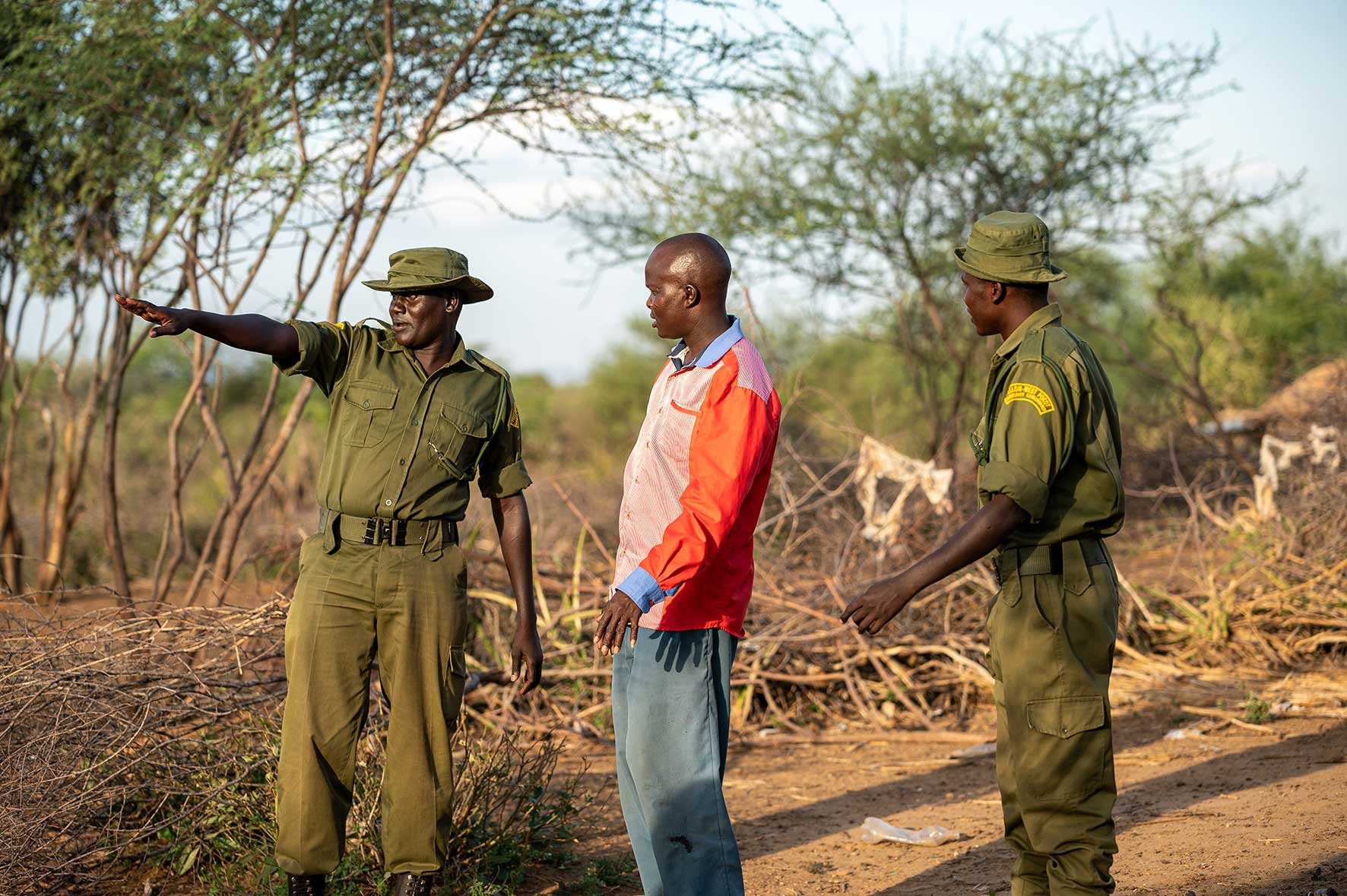
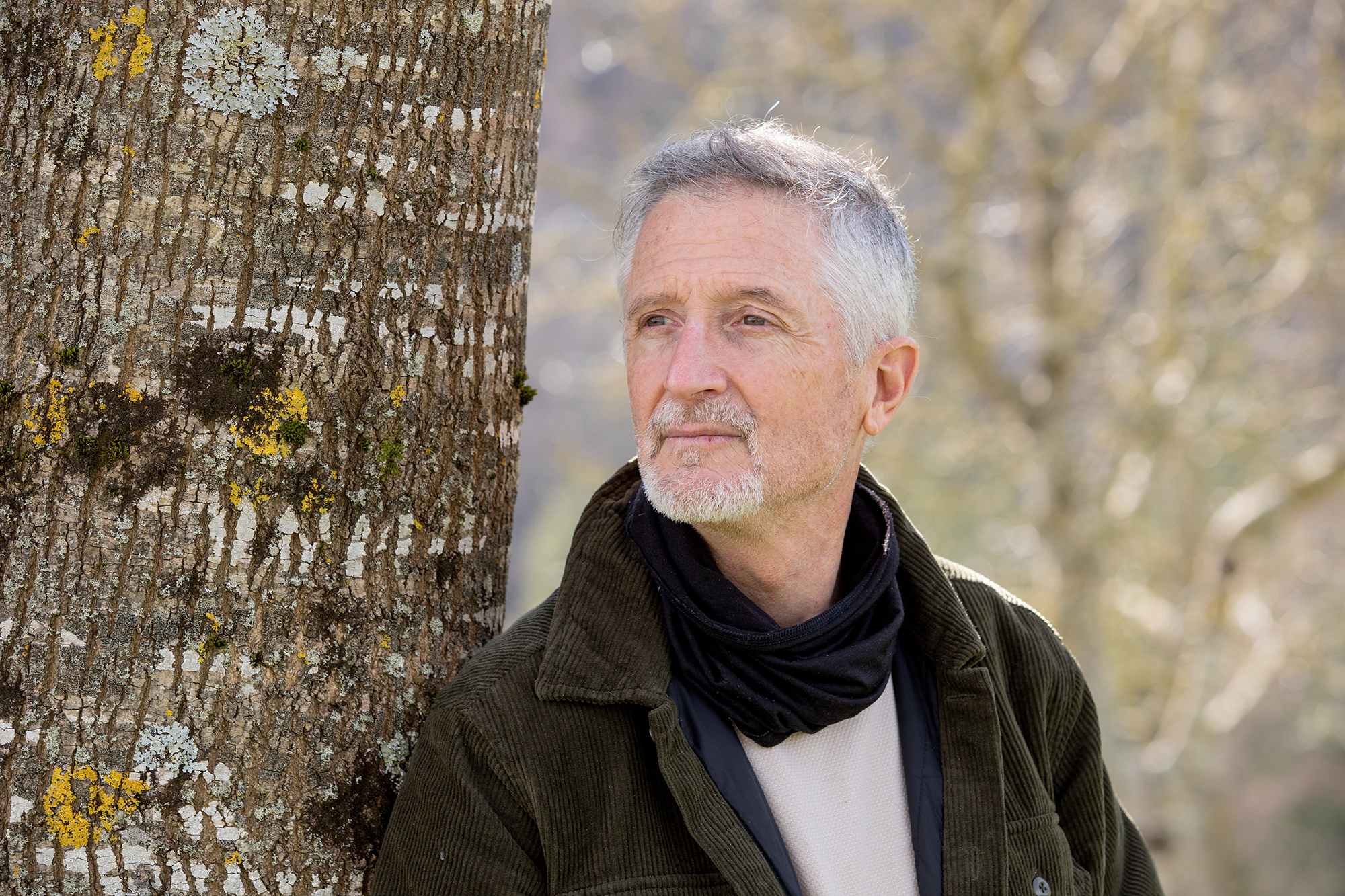


_Glaciar.png)
